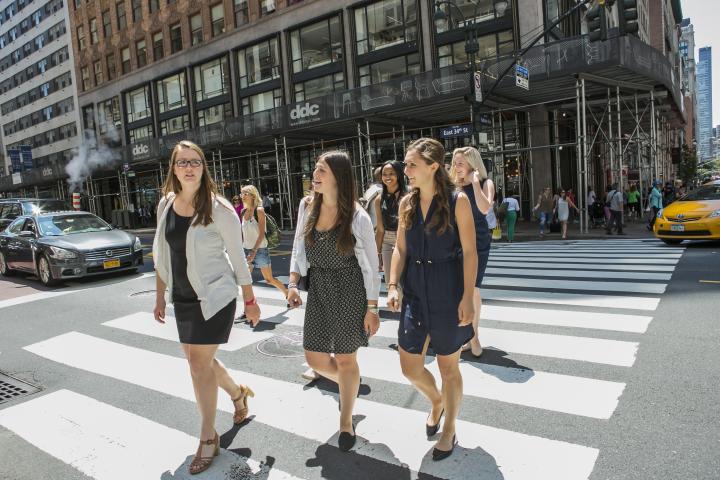
Wagner '92 Gift Honors Lieberwitz
Three decades after graduating from ILR, Eric Wagner '92 found a unique way to thank his labor and employment law professor, Risa Lieberwitz, "and help her as she had helped me."
Soon after Lieberwitz was named academic director of the Worker Institute this past summer, Wagner learned that its Undergraduate Student Research Fellows Program needed researchers, but that students couldn't take the positions without being paid. So, he endowed a fund to support the program.
As a student in Lieberwitz's classes, Wagner, now a partner at Kleinberg Kaplan and chair of its Private Funds and Investment Management Practice Group, "sensed how important she considered teaching to be." The son of teachers, he credits Lieberwitz with "teaching people like me, who planned to go to law school, how to think about legal issues."
One of those classes was "Constitutional Aspects of Labor Law," which had 10-15 students. "We sat around a table and learned through discussion and analysis," he recalled. "It gave me a leg up for classes I would take in law school."
Although their politics differ, Wagner always felt heard in her classes. "You were encouraged to speak your opinions, even if she disagreed with them," he said. "And if she disagreed, she might say, 'Here's why. Have you thought about this? Have you looked at it this way?' She made you comfortable discussing your views."
"I can't tell you how much that means to me, because one of the things I study in my own research is academic freedom," Lieberwitz said. "That Eric felt he could express himself and put his views and analysis out there and be taken seriously and be heard – you can't get a better compliment from a student than that."
Wagner earned a juris doctorate at New York University School of Law in 1995. After serving as an associate at Rogers & Wells, he joined Kleinberg Kaplan in 1997. "At the time, the practice was up and coming in an area that wasn't yet up and coming, which was private investment funds – hedge funds, private equity funds, investment management," he said. "The industry hadn't really taken off yet; I hit it at the right time."
Over the years, the firm has hired "a number of Cornell grads, many of whom are ILR grads. I don't do that just to help them," Wagner said. "I do that to help me, because they're super smart and super hardworking.
"One came with a recommendation from Professor Lieberwitz. And I remember saying, 'Oh, that's good enough for me. You're hired!'"
Through the Worker Institute's Undergraduate Student Research Fellows Program, students work on projects in small teams under the supervision of a faculty member. Along with Ithaca-based faculty, they collaborate with labor extension faculty based in New York City and Buffalo.
"This creates a bridge between the resident program and the extension program, allowing faculty to work together on projects and giving students connections to both resident faculty and extension faculty," Lieberwitz said.
Projects are wide-ranging, but all focus on workers' rights or collective activity. "The program is a great opportunity for undergraduates to make meaningful contributions to research on workers and their organizations while expanding their talents and interests," said Kate Griffith, a co-founder of the program who ran it until last summer.
"Students have presented their work at academic conferences, given presentations to the Cornell community and shared their work with unions and other organizations that promote workers' rights and collective action," said Griffith, ILR's Jean McKelvey-Alice Grant Professor and senior associate dean for academic affairs, diversity and faculty development. The program, she said, is a good example of "the wonderful engaged learning opportunities that Cornell ILR fosters outside of the classroom. It shows that students can play a pivotal role in engaging in, and disseminating, applied research that has real-world implications."
Current projects range from "The ILR Labor Action Tracker" to "Labor Leading on Climate: Climate Jobs Program" to "Immigration, Race and Workplace Precarity." Fellows also are working on the written report for "Equity in Focus: Job Creation for a Just Society," a webinar series and in-person summit co-hosted by the Worker Institute and the U.S. Department of Labor Women's Bureau. The report will discuss innovations for reversing inequalities in job creation and access.
Reflecting on Wagner's gift, Lieberwitz said, "It creates stability. It's a wonderful foundational gift to sustain the program and allow us to think about ways to build it further."


